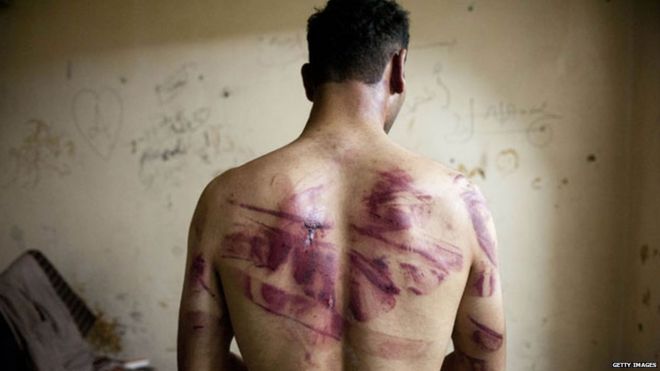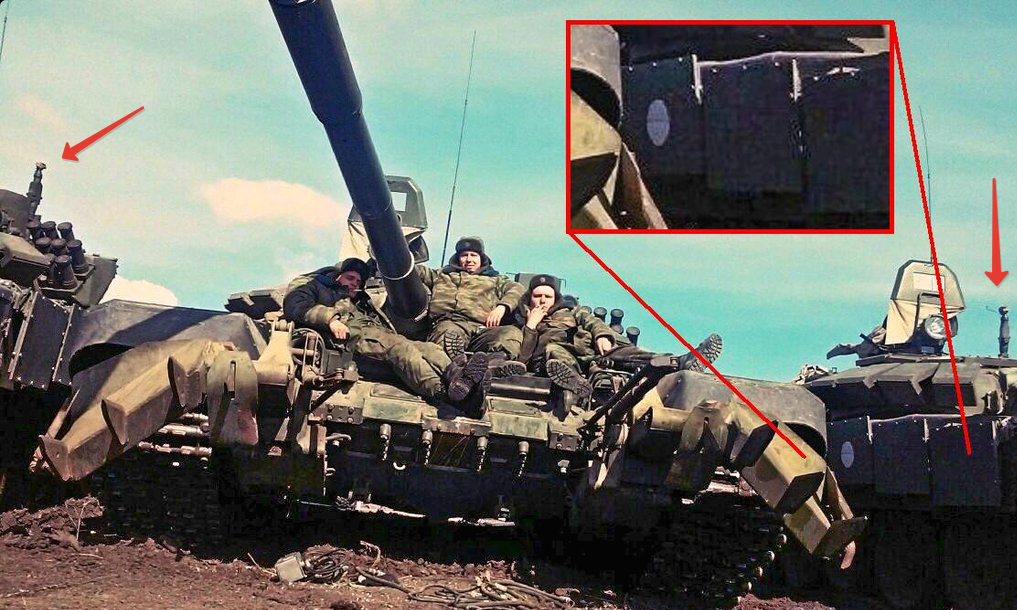
UN panel documents ‘extermination’ of detainees in Syria
GENEVA —International investigators say several thousands of detainees have been executed, beaten to death or otherwise left to die during Syria’s civil war, in policies that appear to amount to extermination under international law.
The U.N.-backed Commission of Inquiry on Syria presented a 25-page report Monday on killings of detainees by President Bashar Assad’s government. It also cites execution policies by radical groups like the Islamic State and al-Qaida-affiliated Nusra Front.
The report is drawn from 621 interviews conducted between March 2011 and November 2015. Investigators say they are short of enough evidence to provide more specific estimates of killings of those detained.
The report seeks “targeted sanctions” against unspecified individuals or groups responsible for such crimes. The investigators lamented inaction by the U.N. Security Council about possibly launching criminal probes.
***
VoA: The U.N. report accused Damascus of starving the detainees or leaving them to die with untreated wounds and disease. It said Assad’s government has “engaged in the multiple commissions of crimes, amounting to a systematic and widespread attack against a civilian population.”
The report covered the period from March 2011 to November 2015 — the first 4½ years of the ongoing Syrian civil war.
Investigators
The U.N. investigators said they believed that “high-ranking officers” and other government officials knew of the deaths and of bodies being buried in mass graves.
The special inquiry into the Syrian treatment of its civilian population called for the U.N. Security Council to impose “targeted sanctions” against Syrian civilian and military officials complicit in the deaths and torture, but did not name them.
The investigators called for referral of the cases against the suspected war criminals to prosecutors at the International Criminal Court at The Hague in the Netherlands. Their names are being kept in a U.N. safe in Geneva.
***
BBC: Their report describes the situation of detainees as an “urgent and large-scale crisis of human rights protection”.
Survivors’ accounts “paint a terrifying picture of the magnitude of the violations taking place,” it said.
The civil war in Syria has claimed an estimated 250,000 lives so far.
About 4.6 million people have fled Syria, while another 13.5 million are said to be in need of humanitarian assistance inside the country.
Extract from February 2016 report for UN Human Rights Council
Main detention facilities controlled by the General Intelligence Directorate include Interior Security branch 251 and Investigations branch 285 located in Kafr Soussa, west of central Damascus.
Former detainees described inhuman conditions of detention resulting in frequent custodial deaths.
Officers were observed giving orders to subordinates on methods of torture to be used on detainees.
Corpses were transported by other prisoners through the corridors, sometimes to be kept in the toilets, before being removed from the branch.
Evidence obtained indicates that the superiors of the facilities were regularly informed of the deaths of detainees under their control. Prisoners were transferred to military hospitals before they were buried in mass graves.
Both government and rebel sides are accused of violence against people they detain, the investigators say, but the vast majority are being held by government agencies.
A pattern of arrests since March 2011 targeted Syrian civilians thought to be loyal to the opposition, or simply insufficiently loyal to the government.
Senior government figures clearly knew about and approved of the abuse, says the report entitled Out of Sight: Out of Mind: Deaths in Detention in the Syrian Arab Republic.
Most deaths in detention were documented as occurring in locations controlled by the Syrian intelligence services.
“Government officials intentionally maintained such poor conditions of detention for prisoners as to have been life-threatening, and were aware that mass deaths of detainees would result,” UN human rights investigator Sergio Pinheiro said in a statement.
“These actions, in pursuance of a state policy, amount to extermination as a crime against humanity.”
Torture ‘routine’
The report also accused opposition forces of killing captured Syrian soldiers.
Both so-called Islamic State militants and another group, al-Nusra Front, had committed crimes against humanity and war crimes.
IS, the report said, was known to illegally hold a large, unknown number of detainees for extended periods in multiple locations.
It had set up detention centres in which torture and execution are “routine”.
Detainees were frequently executed after unauthorised courts issued a death sentence.
Extract from February 2016 report for UN Human Rights Council
In 2014 Syrian authorities informed a woman from Rif Damascus that her husband and two of her sons were dead, all known to have been held in a detention facility controlled by the Military Security.
The family obtained death certificates from Tishreen military hospital, stating that the cause of death of all the three victims was heart attack.
A third son remains unaccounted for.

